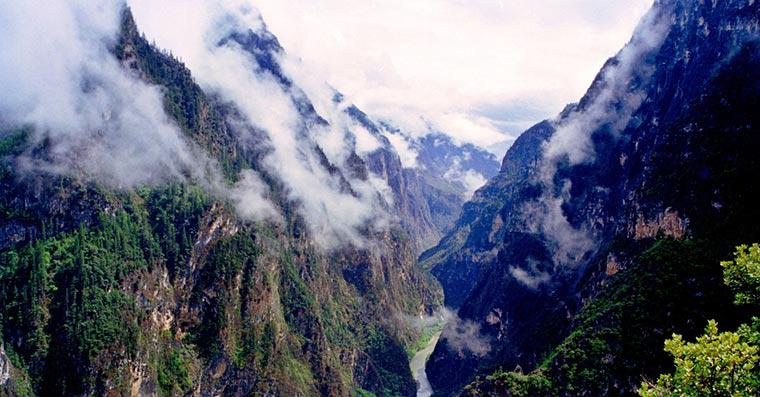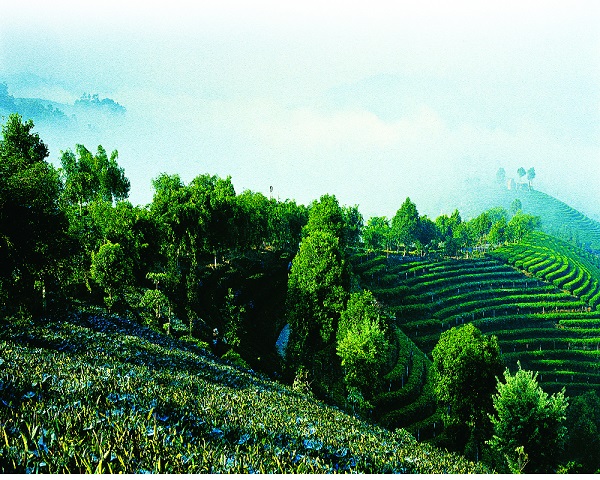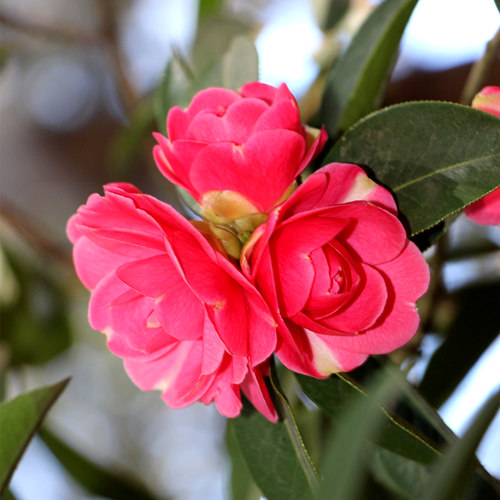
Detailed Introduction to Jinggu County of Pu'er
Jinggu Dai and Yi Autonomous County (景谷傣族彝族自治县) is located in Pu'er City, Yunnan Province, China. It is celebrated for its lush landscapes, ethnic diversity, and agricultural richness, especially in tea and tropical crops. This detailed introduction covers the geography, history, economy, culture, attractions, and future development of Jinggu County.
Geographical Location
Jinggu County is situated in the south-central part of Yunnan Province, covering an area of approximately 7,785 square kilometers. The county is bordered by Zhenyuan County to the northeast, Ninger County to the south, and Shuangjiang County of Lincang City to the west. Its terrain consists of rolling mountains, fertile valleys, and a network of rivers, including the Lancang River, which flows through the region.
The county has an average elevation of 1,250 meters, with its mountainous topography offering diverse microclimates that support a range of agricultural activities. Jinggu enjoys a subtropical monsoon climate, with warm temperatures and abundant rainfall, making it an ideal environment for growing crops such as tea, sugarcane, and coffee.
History
Jinggu County has a long and rich history as part of Yunnan’s multicultural heritage. Historically, it was inhabited by Dai, Yi, and Hani ethnic groups, whose ancestors contributed to the region’s cultural and agricultural development. The name "Jinggu" reflects the deep connection between the Dai people and the area, with "Jing" referring to serenity and "Gu" meaning valley.
During the Tang and Song Dynasties, Jinggu was part of the ancient Nanzhao and Dali Kingdoms, playing a strategic role in the trade and cultural exchange along the ancient Tea Horse Road. It officially became a Dai and Yi Autonomous County in 1954, highlighting its ethnic diversity and cultural significance.
Economy
The economy of Jinggu County is primarily based on agriculture, with key contributions from tea production, tropical crops, and forestry. Tourism and cultural industries are also growing sectors.
1. Tea Production
Jinggu is renowned for its high-quality Pu'er tea, which is cultivated on the misty mountain slopes that dominate the landscape. The Bangwei Tea Plantation, one of the county's most famous tea-growing regions, has a history of over 1,000 years and produces some of the most sought-after raw Pu'er tea leaves. Jinggu’s tea is known for its rich aroma, deep flavor, and health benefits.
2. Tropical Crops
The county’s subtropical climate supports the cultivation of a variety of tropical and subtropical crops, including rubber, sugarcane, bananas, and coffee. Rubber plantations are particularly important for the local economy, with Jinggu being one of the leading rubber-producing regions in Yunnan.
3. Forestry
Jinggu boasts extensive forest coverage, which is a valuable resource for timber and non-timber forest products. The forests also play a crucial role in maintaining ecological balance, with initiatives in place to promote sustainable forestry practices.
4. Animal Husbandry
Livestock farming is another important part of the county’s economy, with the rearing of pigs, cattle, and goats providing income for rural households. The integration of agriculture and animal husbandry helps ensure the sustainability of local farming systems.
Ethnic and Cultural Heritage
Jinggu County is home to multiple ethnic groups, including the Dai, Yi, Hani, Lahu, and Han, each contributing to the region’s vibrant cultural tapestry.
1. Dai Culture
The Dai people, known for their connection to water and nature, have a significant cultural influence in Jinggu. Their traditional water-splashing festivals, stilted houses, and Buddhist temples reflect their rich heritage. The annual Water-Splashing Festival, celebrated in mid-April, is a major event that attracts visitors with its lively atmosphere and symbolic water blessings.
2. Yi Culture
The Yi people, another prominent ethnic group in Jinggu, are recognized for their colorful costumes, intricate embroidery, and vibrant festivals such as the Torch Festival, held in summer. This event features bonfire dances, traditional songs, and community gatherings.
3. Multicultural Harmony
The county is a model of ethnic harmony, with different groups coexisting and sharing their traditions. Local festivals, crafts, and cuisine are a reflection of this cultural exchange.
Natural and Cultural Attractions
Jinggu County is a treasure trove of natural beauty and cultural heritage, offering a range of attractions for tourists.
1. Bangwei Ancient Tea Plantation
This historic tea plantation is a must-visit for tea enthusiasts. Visitors can explore the ancient tea trees, learn



